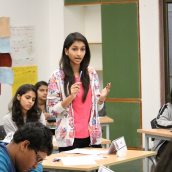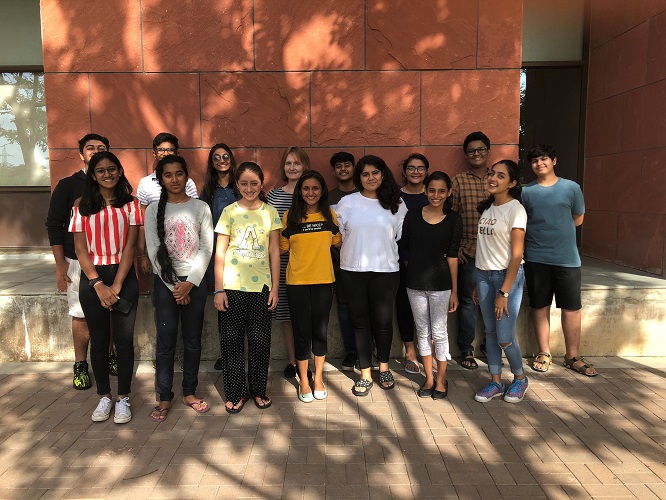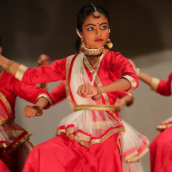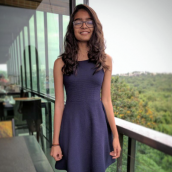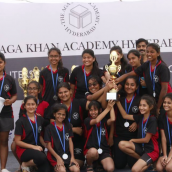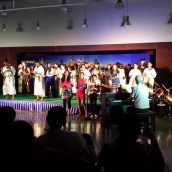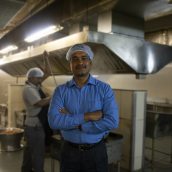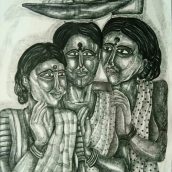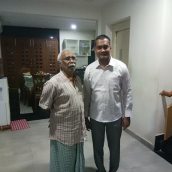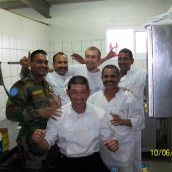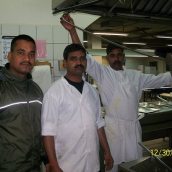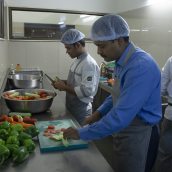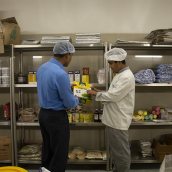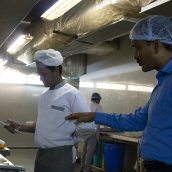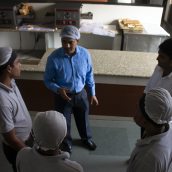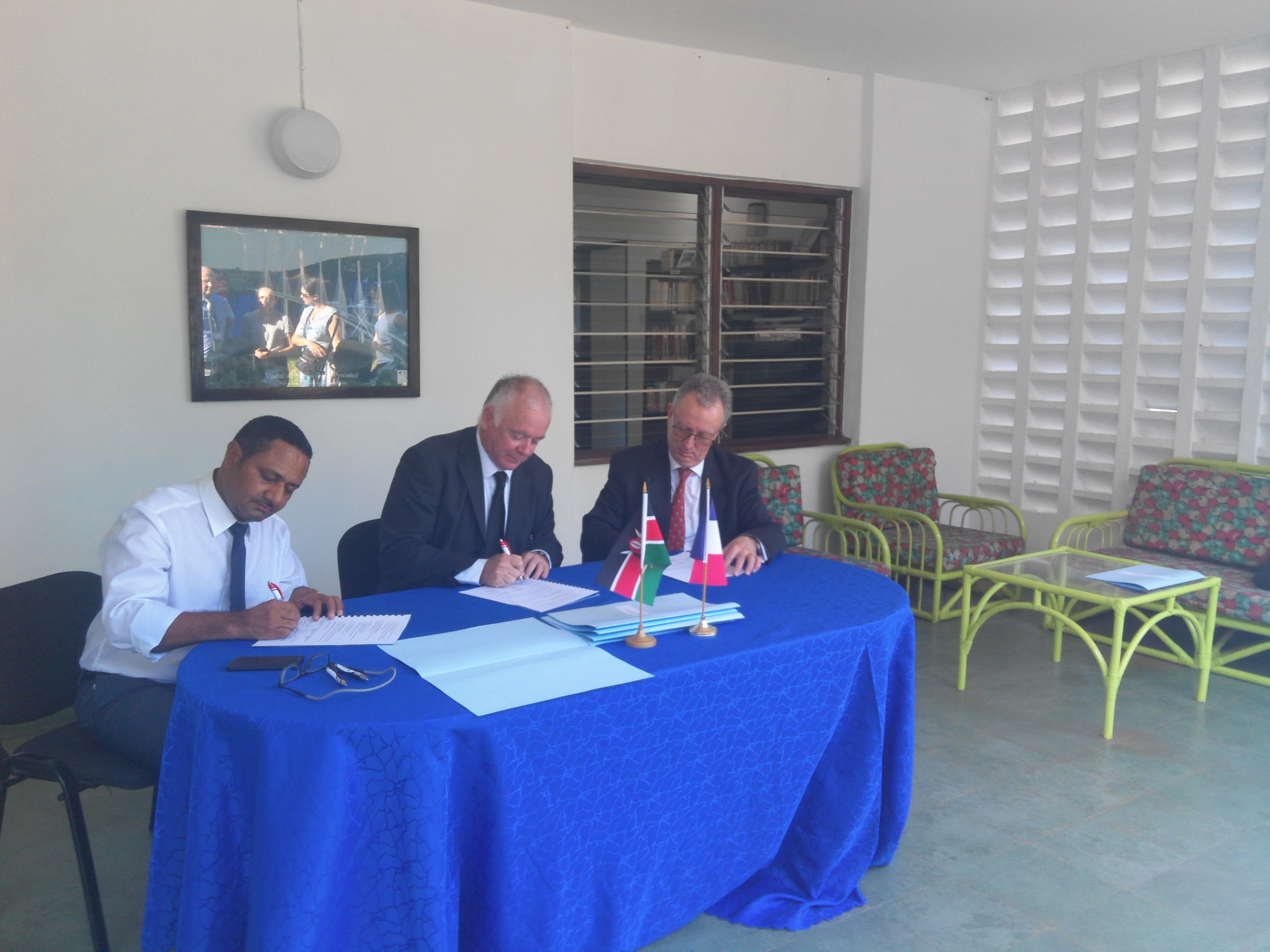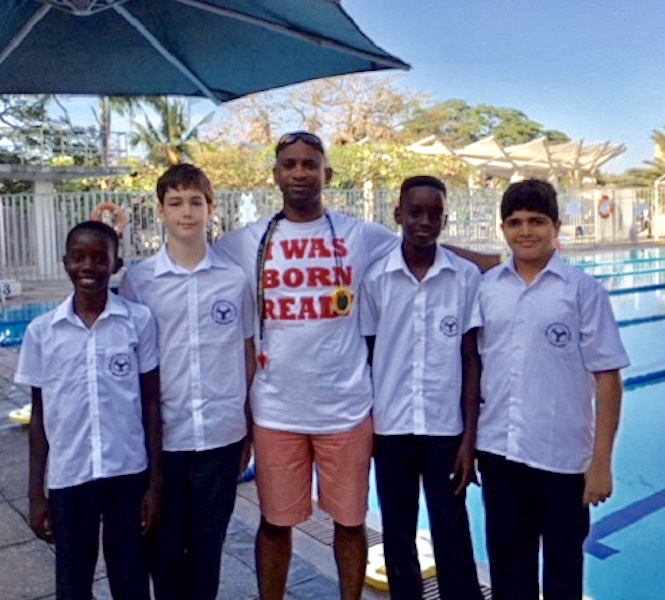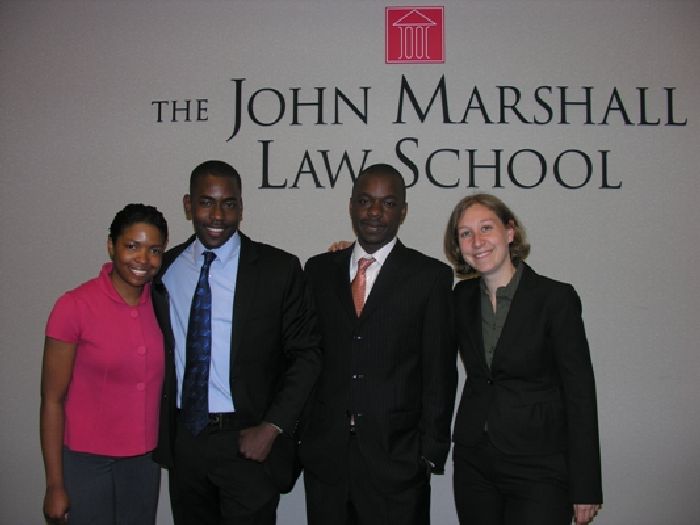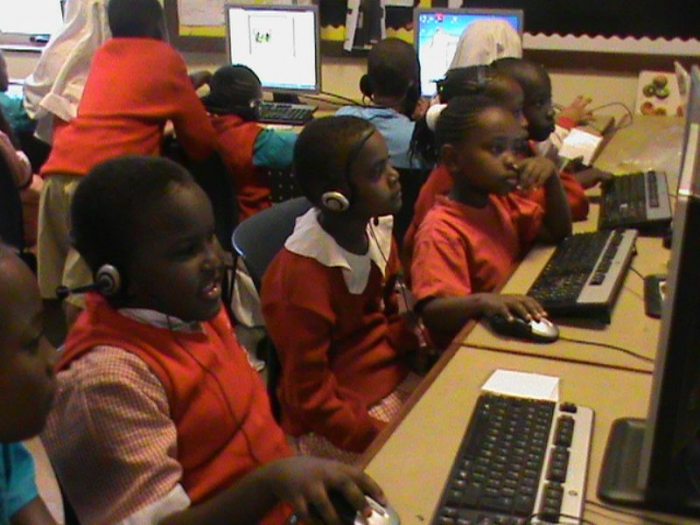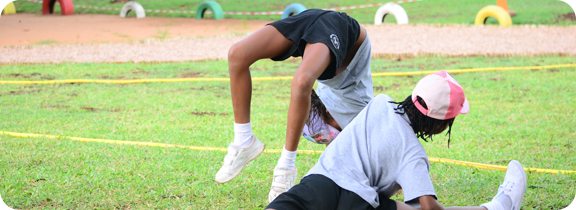
Co-curricular Programmes
Co-curricular programmes enable students to realise their potential in a variety of settings beyond the classroom. Students develop a sense of self-awareness and an understanding of school and community needs and opportunities. They also learn how to apply their gifts and skills to make a positive impact.
At the Academy, we believe in a balanced, rounded, comprehensive school experience. As this includes both academic and co-curricular experiences, we encourage our students to do their best both in and outside the classroom.
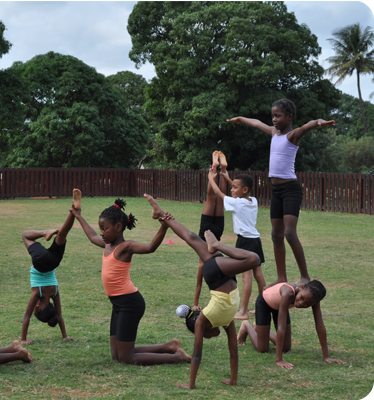 We will offer outstanding sports facilities that will include:
We will offer outstanding sports facilities that will include:
- swimming and diving pools
- cricket, soccer and hockey pitches
- basketball and volleyball areas
- tennis and squash courts
- dance studio
- gymnasium
- athletics tracks.
Children with special sporting gifts will be encouraged to develop their talents in every way. Children with special gifts in music, art or drama will similarly be encouraged through opportunities to practise and perform while at the Academy.
Our co-curricular programmes are clustered into three main streams, each with a different focus:
Creative expression
Whether through visual or performing arts, this cluster engages students to think creatively and express their identities and thoughts aesthetically. Through theatre, art, music and drama, students learn to work together and infuse their projects with values and lessons from other parts of their schooling. Individual and collaborative creative projects emphasise growth and development through personal challenge, ultimately resulting in achievable personal goals.
Action
The student as a reflective practitioner is a basic tenet of the action cluster. Through physical sport – both competitive and non-competitive – students are challenged in their physical growth, and learn values such as good sportsmanship, teamwork and ethical behaviour. We encourage them to extend themselves by trying different activities and working with teammates to pass on their knowledge. In line with developing the student as a whole, a healthy lifestyle complements and enhances academic achievement.
"The Academies will be concerned with the whole of the human being – mind, body and spirit – and with the broad range of human aspiration – intellectual, moral, artistic, physical and spiritual. The fact that these are residential academies will contribute enormously to these broad objectives, encouraging students to identify more completely with the school, to help lead it and shape its environment."
Citizenship
At the Academy, we encourage knowledge and understanding of humanity and civil society. Through their involvement in citizenship activities, students gain an understanding of the practical implications of their work and study. By collaborating with community groups on sustainable projects, they develop an appreciation for human rights and human dignity, and of how their actions impact the world around them.
To learn more about the Academy's programme, please visit the Academic Programme page.
Syeda Sayema Mayesha – tackling global issues through film
Watch Sayema's film "One Sky, Two Souls" below.
Sayema, currently in grade 11, directed and produced an impactful short film to create awareness on child rights for her IB MYP Personal Project towards the end of her IB Middle Years Programme journey. The film was screened in February 2017 at the Academy’s annual ‘innovation expo’.
What caused her to pursue this particular project? “I was inspired to make this film as I have often observed how privileged children do not appreciate what they have, whereas the ones who suffer continue to do so as they are neglected,” Sayema explains. “As a student of the Academy, where children are given the opportunity of holistic education regardless of their financial background, I could not have worked on a better project.”
Sayema is from Bangladesh and studied at the Aga Khan School in Dhaka before joining the Hyderabad Academy in 2014. Her favourite subject is I&S (Individuals and Societies), particularly Economics, because she loves how it engages students and sharpens their perception about the real world. “15 years from now, I see myself completing my higher studies in International Relations and working as a Public Relations Executive. The Academy has influenced this career choice as it has broadened my knowledge and perspective about the world making me enthusiastic to be a leader and play a part in constructive change.”
Soccer is a passion for Sayema, and she has been part of the Academy Senior School girls’ soccer team from the beginning. “It has been a splendid experience for me to play home ground tournaments as well as outside tournaments and win the first ever trophy for the team in Kerala.” Another momentous occasion for her was when she won the ‘Best Delegate Award’ at her first ever Academy Model United Nations in 2015. She is now a passionate MUN participant.
Her knowledge of global issues and her desire to contribute to social change is evident through the film that she made, discussing child rights through the angle of education and labour. “Ensuring child rights today will ensure a brighter future for all tomorrow. The entire process has taught me many aspects of filmmaking. It has taught me to become a leader while working with a team. I have learnt how to deliver stories to the world through my own lens.”
Watch Sayema's film:
Anahita Aman: Grateful for the Academy’s holistic approach to learning and development
Anahita Aman is in her seventh year at the Aga Khan Academy in Hyderabad. Having started there in grade 5, she is now a grade 11 student in the Diploma Programme. She is wise beyond her years and yet has a youthfulness that is contagious. She is full of hopes and dreams and strives to get the most out of her days at the Academy so that she can ultimately give back to the community and society at large.
For Anahita, the strongest part of the Academy is its holistic approach to student development. “They don’t just focus on the academics but also on sports, music and art – so in that way it’s a really holistic approach to learning, and it’s helped me develop into a multidimensional and multifaceted person,” Anahita says. This holistic approach means that she gets the freedom to explore her passions, and that excites her. She loves music – whether it be singing, playing the keyboard and tabla, or learning Indian dance. She is also a self-proclaimed feminist who is passionate about gender-based violence, gender equality and education for girls. She recently had the chance to fuse these two passions as part of a personal project requirement at school. She wrote, composed, and performed her own songs with powerful messages on these topics.
This year, Anahita made a shift to the residential programme and says that it has been a great learning experience – one that has forced her to come out of her shell. She has learned how to better manage herself and her time, and she has become more independent and more social. “I learned how to adapt to my surroundings, how to adjust with other people and to make things work.” But Anahita feels that she has grown in other ways also, and this stems again from the holistic approach of the Academies.
“Service and action is mandatory as a part of the curriculum…they emphasise the need for community awareness, for concern about society, and they emphasise the need to give back and to make positive and effective contributions to society.” For the service and action component of the Academy’s programme, Anahita was part of fundraising teams that raised money for nearby government schools to install water filtration systems and purchase sports equipment, among other things. “We don’t look at it as an obligation or a compulsion but we do it out of passion, and the Academy gives us that passion, that feeling or need to give back to society,” Anahita says. She is proud of her service accomplishment along with many others that the Academy has also helped her to achieve.
She is a member of the journalism club and has made great strides in her writing skills, including how to better articulate her thoughts. She has taken part in a national sports tournament where she represented her school in football and track and field, having won a silver in high jump. And she has been part of the Model United Nations where she not only got a real sense of how the world works, including how people live and what the prevalent issues are, but also developed skills in public speaking, problem solving and knowledge application. Anahita says, “The Academy helps us apply this knowledge to real-life situations.”
The holistic approach to learning and development that the Academy takes is something that Anahita believes makes it unique. But there are other things too. For one, there is no spoon-feeding. Instead, you’re taught how to learn and how to learn on your own – the approach is not one of rote learning but rather application of real-life situations. She’s also really happy that the Academy creates a safe space. “We have that sense of comfort that there’s no pressure of performing and we have the space to experiment with things. We don’t feel pressure at any point, we don’t feel stressed, and we don’t look at exams as huge challenges but as small barriers that we can overcome.”
Anahita also believes that the Academy’s mission and vision are both important and inspiring. In fact, it was the mission that attracted her parents to send her there. “It teaches us to be culturally rooted and diverse. It teaches us how to accept our differences and so we have this feeling of community,” says Anahita. The Academy also aligns within the framework of the International Baccalaureate (IB) programmes. As such, the attributes of its learner profile are very powerful in instilling life values. All of this is what she believes make it distinct from many other schools.
Anahita credits the Academy for helping her become less shy and less self-conscious. She says, “I feel like I have the comfort to be who I am and to express myself freely. I feel acknowledged and I feel I’m being appreciated for who I am.” When asked if there was any particular person at the Academy that played a big part in this, or whether there was someone she really looks up to, she says that she doesn’t account only one person as a role model but instead looks to the many amazing people she has met along the way for their different but equally important attributes. “I may like someone’s enthusiasm, someone’s hard work and dedication, the way they work with people, the way they bring people together,” Anahita says. “I like to get inspired by these characteristics, by these attributes from different people and imbibe them into myself to be the best person I can be.”
Anahita’s future looks bright. While she is still unsure of what exactly she wants to do, she has learned how to articulate her passion, and that in itself has given her a sense of determination. She hopes to be able to combine her interests in music and literature with humanities and gender studies. She imagines perhaps becoming a poet or musician and incorporating important messages into her work. “I think the Academy is giving me the space and the platform to explore what I’m actually interested in,” Anahita says, “and I think that will lead me to my ultimate ambition.”
By Ceisin Popat
Dhan Prasad - the Academy's own renaissance man
Dhan Prasad was born in Hyderabad after his parents relocated here from Nepal, and grew up in Red Hills. He joined the Institute of Hotel Management and Catering Technology, completing their Food Production & Patisserie course in the year 1993. In the following years, Dhan Prasad trained and worked at two of the premiere hotels in India, the ITC Grand Chola in Chennai and Oberoi Krishna in Hyderabad (renamed Taj Krishna). It was during this stint in Hyderabad that Dhan Prasad decided to pursue his passion for the arts. “You can call it my first love,” he says.
As a school boy, Dhan Prasad often visited the Jawahar Bal Bhavan in Nampally. The Bal Bhavan, with its high ceilings, yellow walls and large play area was created to be a place where children could hone their talents in the arts, learning music, dance, and, of course, drawing and painting. Here, he trained under artist and National Film Award winner, Thota Vaikuntam, whom he describes as his role model, guru and inspiration. “He used to encourage me by giving me big drawing charts and colours.” Dhan Prasad re-entered university in 1995, this time as a fine arts student at the Jawaharlal Nehru Architecture and Fine Arts University. His art, mainly sketches and acrylic, portray scenes of men and women, often at work, and always in conversation. The paintings are on large canvases, and though they have some of the stylistic attributes of Madhubani art, they are strikingly unique. The Bal Bhavan he went to is still active today and caters to around 3000 children in spite of being under-funded, and sharing its space with a local fire department.
“It was very tough to manage my work and my painting,” he says. Dhan Prasad was juggling university work and his job at the Krishna simultaneously at this time. As the pressure mounted, he was informed that he had been chosen to be Junior Commissioned Officer (JCO) of catering in the Indian Army, a proposition that comes from the desk of the President of India. Dhan Prasad describes joining the army as a bold decision. He remembers thinking, “I cannot ignore this opportunity to serve my country.” So he, in his words, left his white chef’s robes and donned the olive green of the Indian army.
Glad to have the opportunity to serve his country with his culinary abilities, he worked in the army for 19 years, serving in its storeyed institutions across the country and even abroad. Dhan Prasad was among the forces sent from India to be a part of the UN’s mission to maintain ceasefire between Syria and Israel. “My most memorable days were as kitchen manager of an international kitchen at UNDOF (United Nations Disengagement Observer Force), Israel,” he shares. “My most challenging work was at IMA (Indian Military Academy), Dehradun and OTA (Officers Training Academy), Chennai.” In these kitchens, Dhan Prasad organised meals and hospitality services for 2000-2500 people every day. Standing in charge of these large operations gave Dhan Prasad an understanding of the workplace, responsibilities and leadership, which make him revered by those who work under and alongside him.
“Being an army man he brings discipline to our catering,” says Head of Operations at AKA Hyderabad, David Roy. “He’s always on the dot.” Dhan Prasad and David work very closely, and often under high pressure. “In three years, we have never missed catering at a single event, and this is because of our excellent kitchen, its staff, and of course, Dhan Prasad.” It is a great compliment to him that in spite of the demanding nature of their job, Dhan Prasad has created an atmosphere of conviviality in the kitchens and among his support staff. “He understands his job, his responsibilities,” says David. “But the problem with him is that he doesn’t say no to anyone!”
The demands of the Academy’s kitchen are different from those of a military kitchen, and Dhan Prasad relishes the challenges that come with this job. “The diversity [in the students, faculty] gives me an opportunity to challenge myself and be innovative and creative in our day to day catering services,” he says. Dhan Prasad also looks forward to the holy month of Ramzan and being able provide for fasting students at the early hours of dawn. “The Global Encounters holiday camps offer other opportunities to test our calibre,” he adds.
Working at a school, Dhan Prasad believes learning about the mammoth effort that goes into their meals could be beneficial to students’ education. “Students need to have responsibility toward their food." He wants students to be informed about the processes of the food & beverage industry and also about etiquette. “Our students are future ladies and gentlemen who will go out internationally and later become responsible citizens of the nation. Table manners count for a lot when it comes to the personality of an individual.”
At 17, Dhan Prasad knew he wanted to be in hospitality. Today, he is a chef, an artist, and a retired Subedar Major. The praise heaped on him is the kind that Swiss watchmakers pine for. He is efficient, dependable and yet creative. “Art is long and life is short,” he muses. “Cooking is an art and science, it never ends and we can’t master it. The only thing we can do is try, practice and keep doing good work.”
Written by Ajay Sundaram
